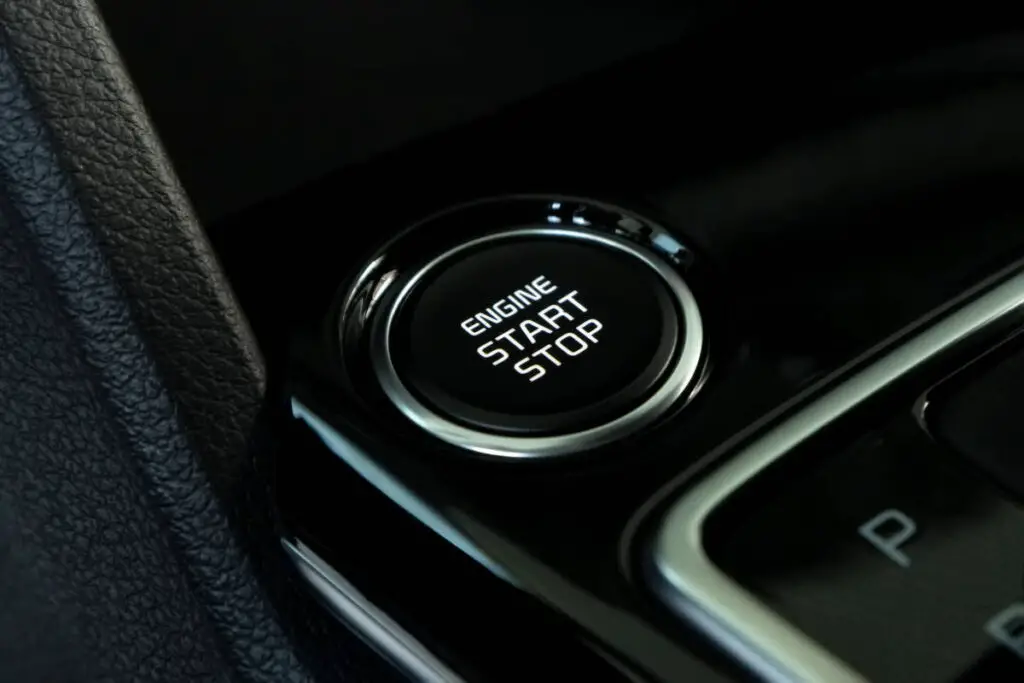Not being able to start your Ford F-150, starting it for the second or the third time, or only hearing the clicking sound is a big annoyance to someone who wants to drive from point A to point B.
In this article, we’ve covered some primary reasons why your F-150 is experiencing intermittent starting. Keep reading to find out the reasons!
Advertising links are marked with *. We receive a small commission on sales, nothing changes for you.
Why Is My Ford F-150 Having Trouble Starting?

When you try to start your Ford F-150, you may hear a single clicking sound, but it won’t start. If this is the case, you may wonder why it won’t start and what is making that clicking sound.
Here are a few of the most frequent causes of your F150’s starter not cranking as quickly as it ought to; the starting is intermittent, or it fully won’t start.
#1: A Drained Car Battery
When your F150’s engine is not operating, the battery supplies the voltage required to start it. Therefore, when a battery begins to fail, it will still be able to start the vehicle but not quickly enough. When this occurs, you can almost feel the engine struggling to turn.
The battery’s capacity to deliver “cranking amps” decreases as it ages. When it is cold outside, it is most apparent.
#2: Battery Post With Corrosion
Your Ford F-150 can struggle to start due to a corroded battery post.
Unfortunately, it also happens to be the item on this list that is the simplest to verify.
In light of this, quickly inspect the battery wires and posts to check for corrosion or battery acid. You’ll need to scrape it off if there is some.
You may buy a specialized battery post cleaner or a wire brush from Walmart or Amazon. However, be cautious about covering your eyes with some protection. Battery acid hurts and is corrosive.
The same effect can also be obtained with a defective battery cable.
By measuring the voltage as it exits the alternator and as it enters the battery, you may determine whether the battery cable is damaged.
Ensure that the battery posts are completely tightened as well.
#3: A Faulty Alternator
Your F150 may hesitate to start if the alternator is defective. If the battery is not fully charged, the device will remain in a halfway state where it performs the required function but not to its full potential.
You may arrange for your alternator to be tested at a parts store. Most have a device that can spin it quickly enough to determine the voltage flowing from it. But doing so requires taking the vehicle’s alternator out.
With a multimeter, testing the alternator is relatively simple to do on your own.
Connect a multimeter to the battery before you start the car. Get the voltage reading, then start the device and retest it.
With the engine running, if it drops below 13.0 V, the alternator is probably damaged.
#4: A Faulty Starter
A worn starter motor might be the cause of your F150 starting slowly.
A strong magnet is activated when the key is turned, forcing the starting gear to engage. When this occurs, the starter rotates the flywheel quickly enough for the engine to take control.
The starter of your car has a strong electric motor within. It won’t be able to spin fast enough when it wears down, and your car won’t start right away.
Another possibility is that the electrical connections connecting it are rusted or broken.
Those are the most common causes for your intermittent starting in your Ford F-150. Meaning your car may start after a second or third time, or it won’t even start sometimes. All of it could be because of these four reasons.
Ford F-150 Won’t Start Because Of A Theft Mode: How Do I Get My Ford F-150 Out Of Anti Theft Mode?
Fortunately, you have a few choices for resetting the system if there is a false warning and you cannot start your truck.
Pressing the alarm button on your key fob should deactivate and reset the system, making it the first and simplest thing to attempt.
Another factor could have caused the anti-theft system to be activated if that didn’t work.
The next component you should check to make sure it isn’t damaged is the door lock cylinder. The door’s internal cylinder is close to where the door latches to the vehicle’s body.
If the door appears to be broken or isn’t latching properly, the alarm might go off because the anti-theft system might assume someone is trying to pry it open.
Look behind the door handle for possible screwdriver attempts to unlock the closed door. The alarm might be set off because of damage to this location.
Contact your local Ford dealer to get them changed if the door lock cylinder or door handle appears broken.
Also, verify that the correct key is being used. Although it may seem apparent, picking up the wrong key in a hurry might be easier than you think and can activate your truck’s anti-theft system.
This is because the car will believe you are attempting to use a fraudulent key.

Luna Meschiari is a full-blooded car nut who is well known to local garages, as each article is meticulously researched and peppered with the latest piece of information. Guess what car she’s driving right now? A RAV4 2021 Hybrid. But her heart also sleeps for pickups like the F-150. Get to know Luna better on the about us page.
Advertising links are marked with *. We receive a small commission on sales, nothing changes for you.

